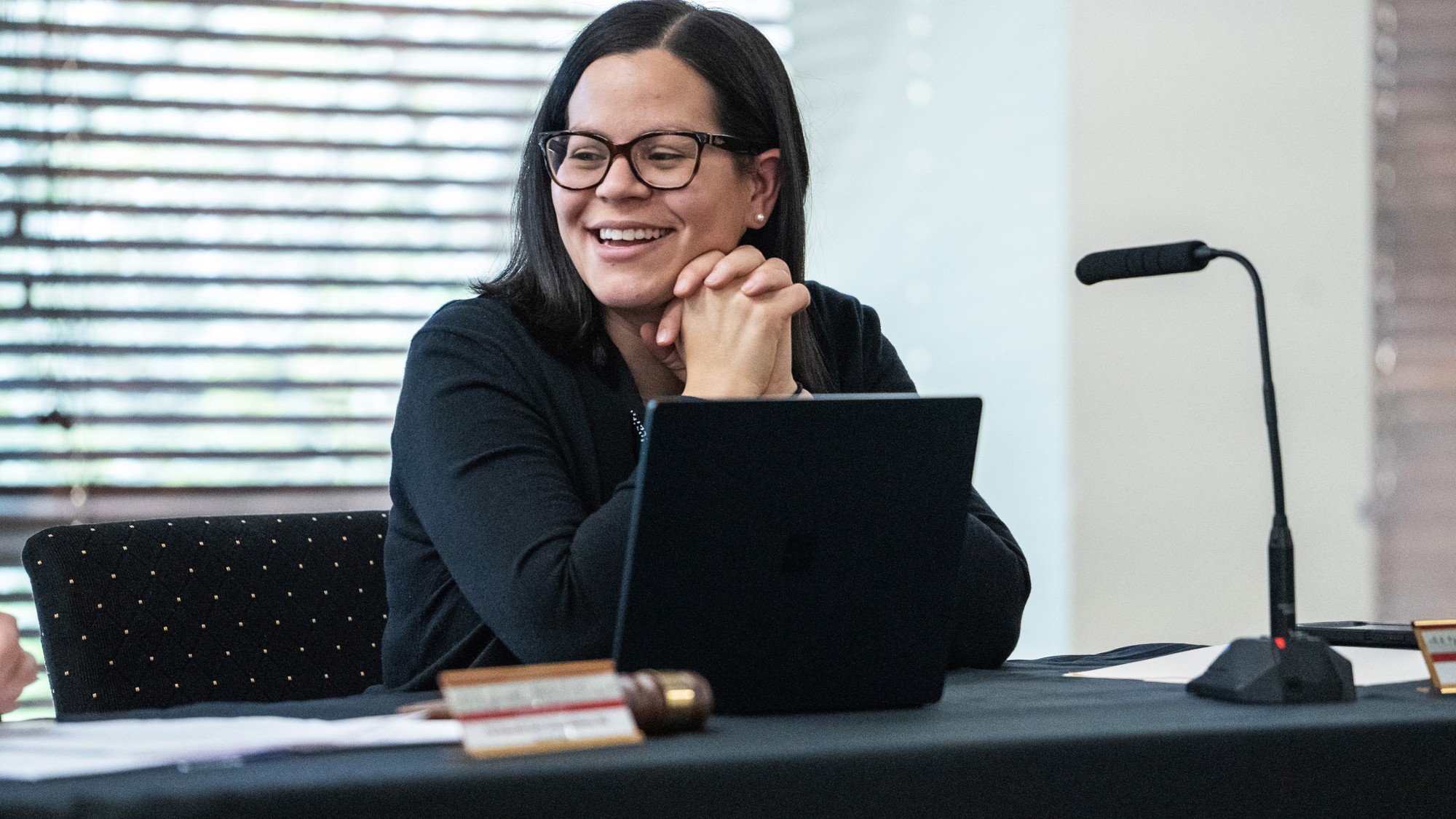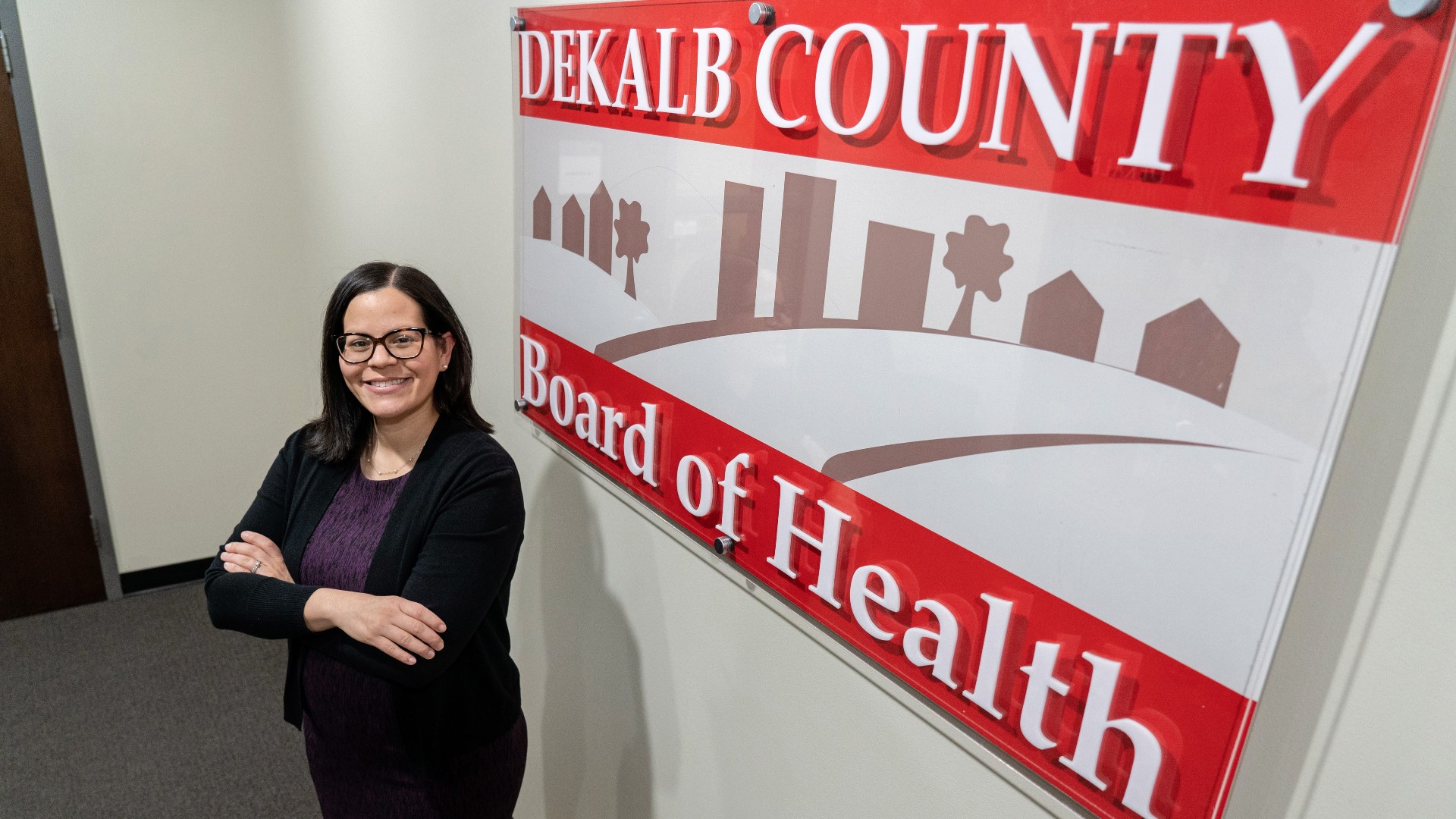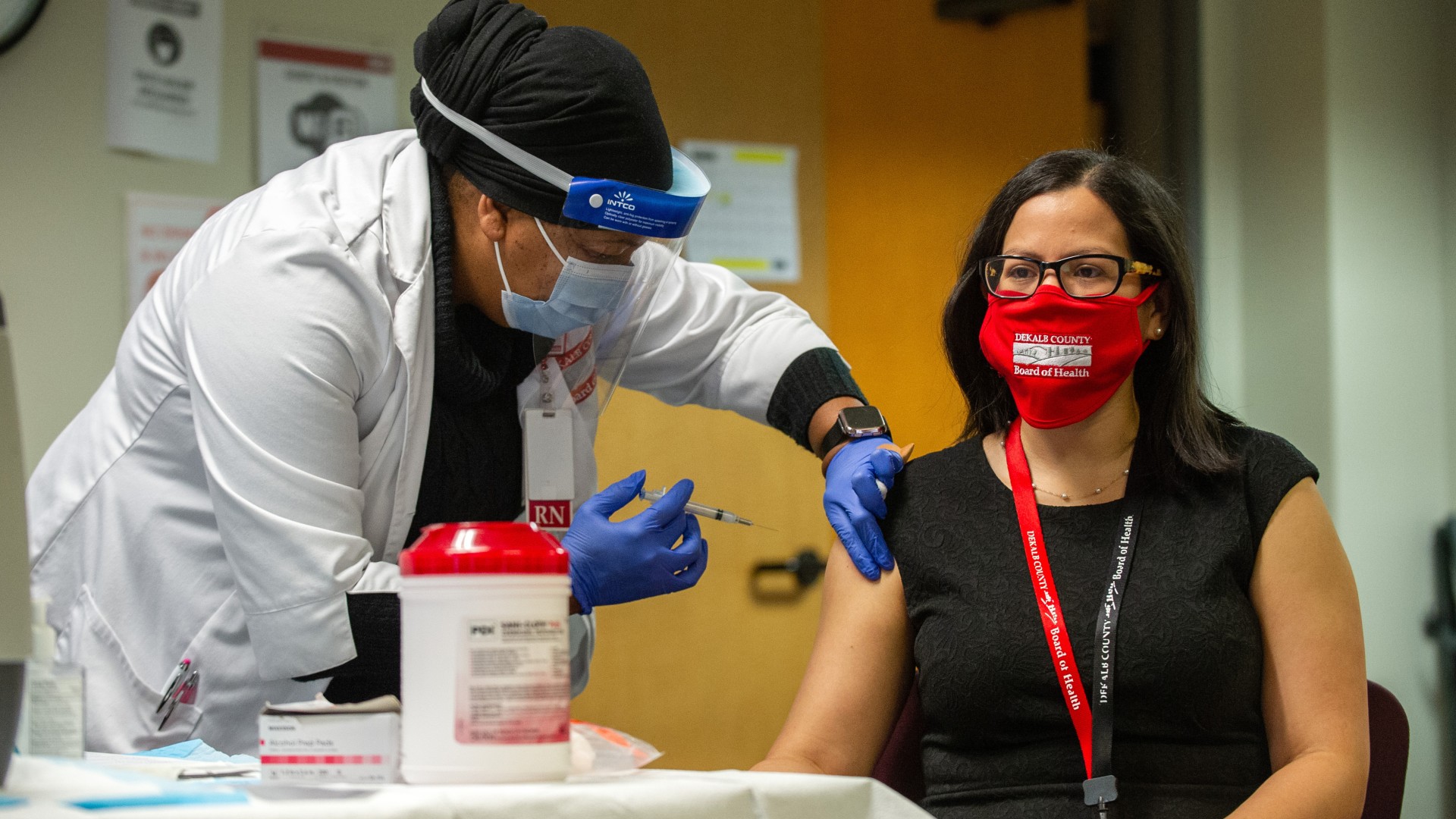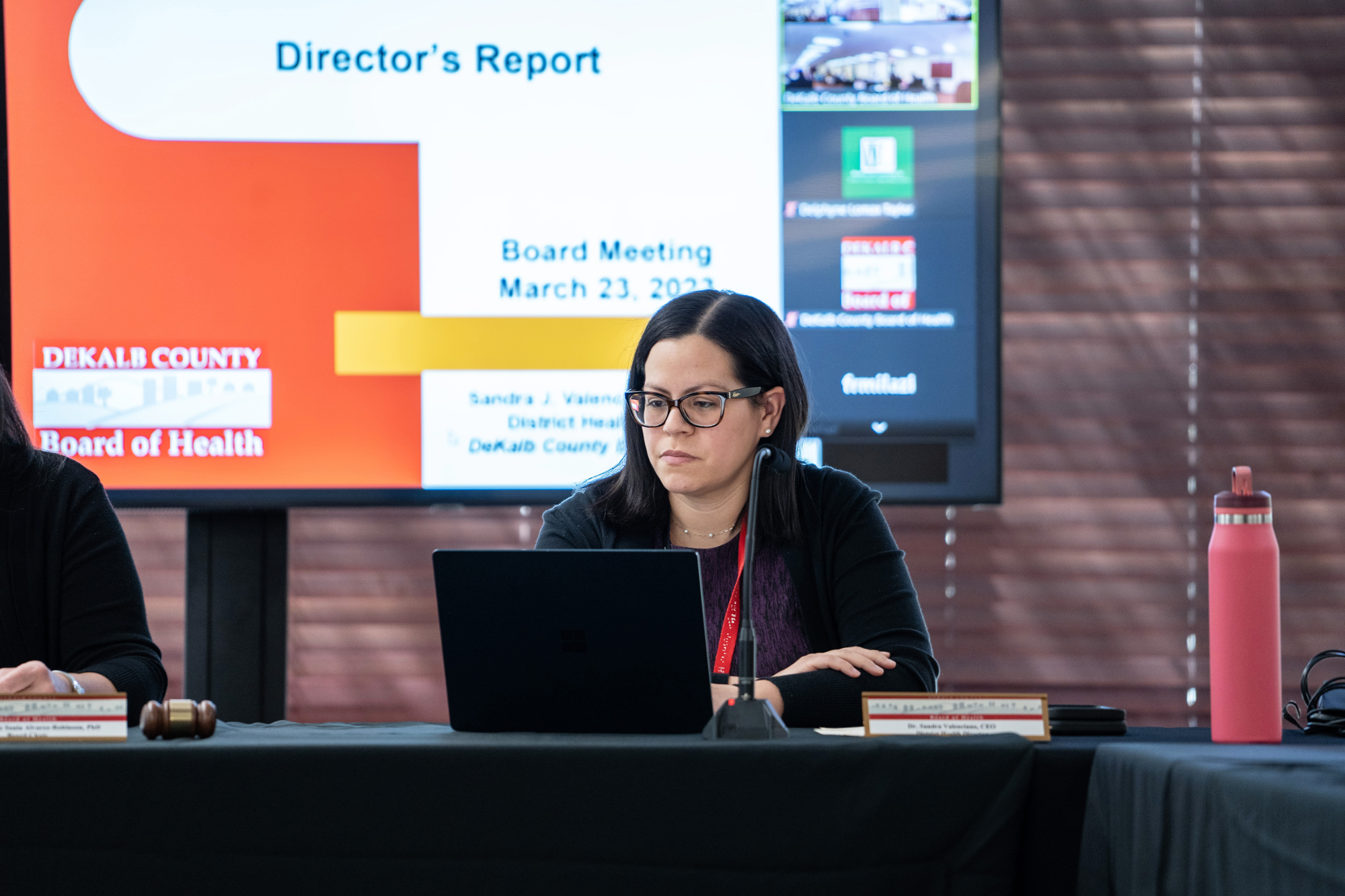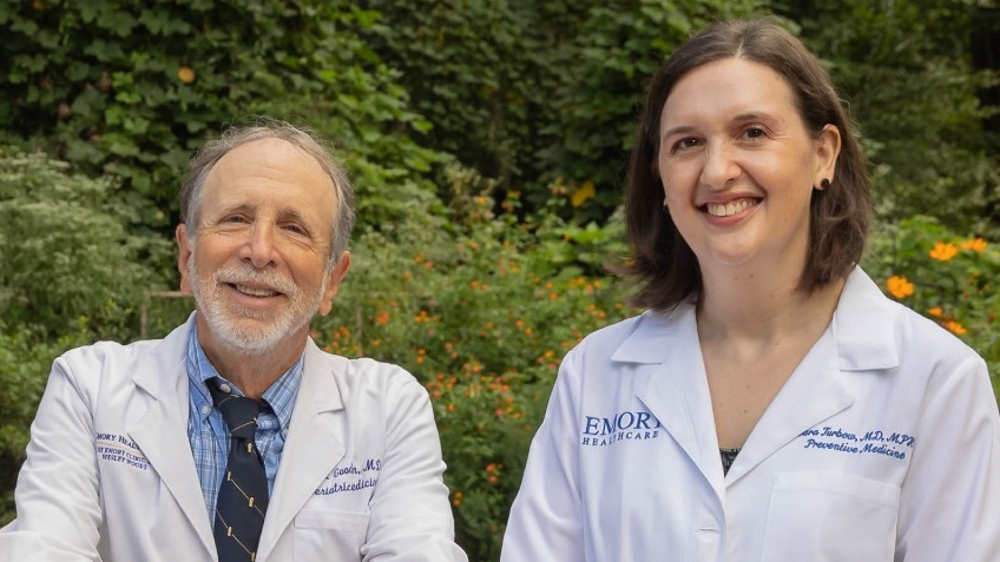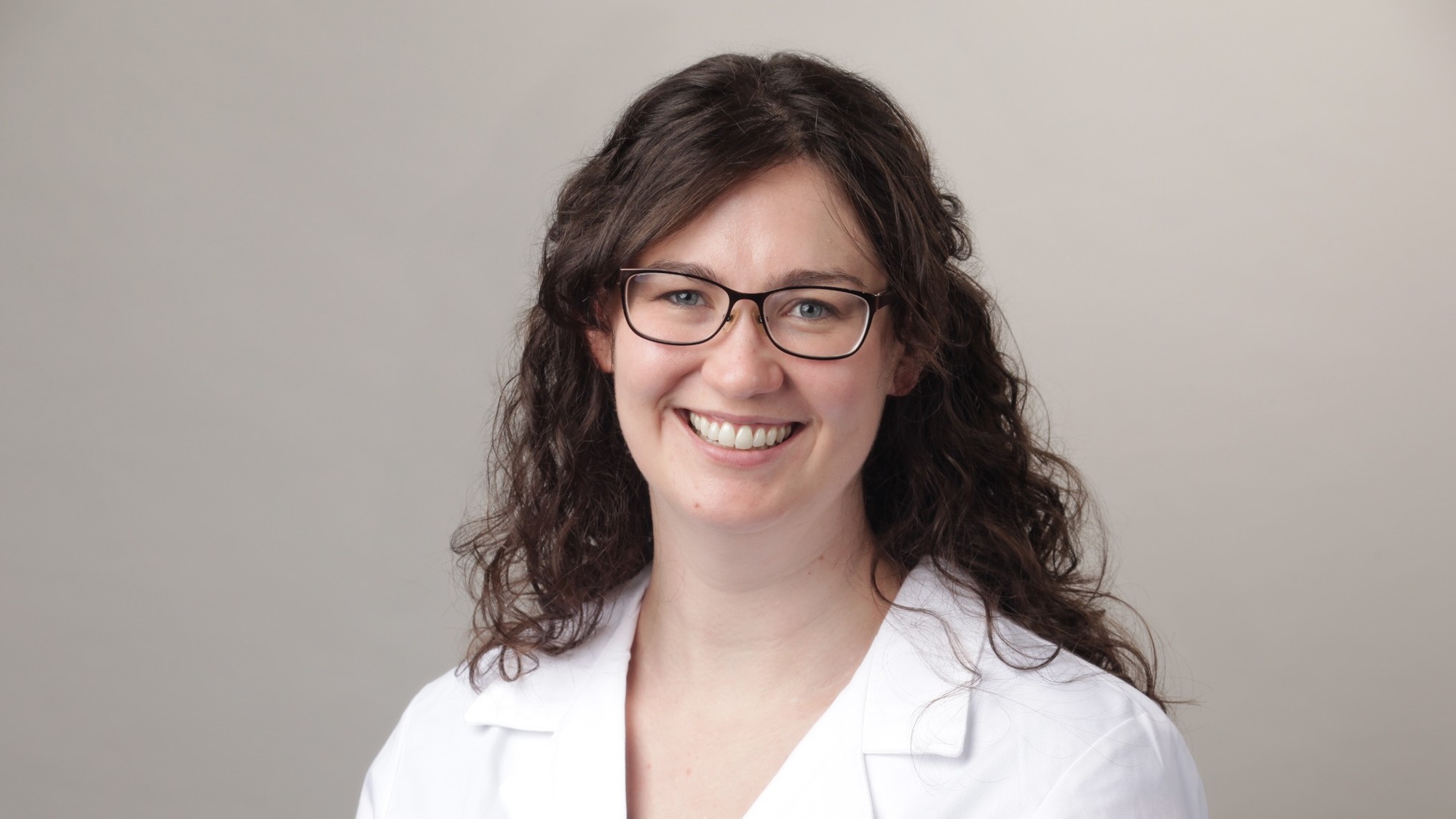Valenciano’s sudden impact energizes her Emory mentors and peers, who battle blank stares even in the medical community when they mention preventive medicine. This field is practically secret even in a city known as the nation’s public health capital, home to the CDC, Carter Center, Task Force for Global Health, CARE, and others. Did you know that James W. Curran, who led the CDC’s national AIDS response and the Emory Rollins School of Public Health, trained in preventive medicine at Harvard Medical School?
While Emory University has trained MD/MPH students for public health leadership roles for more than 40 years (First graduate Edwin Trevathan (82M, 82PH), most medical students don’t discover their specialty until their rotations or later. One rotation at Emory is preventive medicine.
“It doesn’t have a very big footprint,” said Sarah Dupont 18M 18MPH 21MR 22F, a prev med-trained Emory primary care physician and associate program director of Emory's Public Health and General Preventive Medicine Residency & Fellowship Program. “A lot of times in public health, research and recommendations seem really distant from everyday primary care practice, but you need that clinical perspective in order to craft recommendations. And as a clinician, you need to understand the recommendations in order to implement them. Preventive medicine is a whole specialty in which those two translate for each other.”
Prev med faces enormous competition from better-known specialties, said Richard A. Goodman 01L , 11F, a leading physician in public health since 1978 and advisor to the Emory program. He points out that Emory is home to one of the largest medical training programs in the country, with more than 1,300 residents and fellows in more than 100 training programs and 200 first-year positions.
“It would seem to be a paradox or maybe even an irony that you have a medical residency and fellowship training program in preventive medicine, situated at Emory University with the Rollins School of Public Health and literally adjacent to the CDC,” Goodman said. “And yet so little is understood about the specialty and about the program itself.”
“People should care because our program and 41 like it across the country are training doctors to prevent a lot of people from getting sick at one time instead of helping one patient at a time get well,” he added. “For the same dollar you spend on an individual patient getting well, you can potentially protect a community.”
Emory’s Public Health and General Preventive Medicine Residency & Fellowship Program attracts doctors like Valenciano and Dupont who typically have treated patients one-on-one (like through a primary care residency) and encountered systemic barriers to them getting healthy. Instead of burning out, they seek to make a bigger difference to more patients by preventing illness, not just treating it.
“I worked in an underserved clinic in a food desert, and my patients’ problems were often beyond what I could manage in a 15-minute appointment,” recalled 2019 resident Elizabeth Rabold 19MPH 19MR. “Financial insecurity, and lack of mental health services, social workers, dietitians, and healthy food options were challenges that prevented them from meeting their health goals. I was looking for a way to explore how I could have a larger impact, and at Emory, I could gain training in preventive medicine, population health and earn a master's in public health all at the same time. The program also had ties with the infectious disease clinic at the Atlanta VA, which stood out to me because I was interested in HIV.” Rabold now serves as CDC medical officer for the Maternal and Child Health Branch of the Division of Global HIV and Tuberculosis.
Since 1994, Emory has trained 59 public health and preventive care doctors. Their residency spans 1 to 2 years, and for each of those years, requires at least two months serving in a governmental public health setting. Two fellows who graduated in May 2023 will enter positions in public health agencies: Siri Chirumamilla 23MPH 23MR in a management/ technical position at the Los Angeles County Department of Public Health, and Alex Molinari 23MR as a CDC EIS officer.
As insiders, prev med residents see how barriers to health are addressed through surveillance, outbreak detection, disease prevention, and control, and emergency preparedness/response. This exposure is critical for inspiring doctors like Valenciano to enter this type of public service, and say no to 9-to-5 specialty practices that usually pay more.
“If you can't get talented people learning about how county boards of public health run, then why would they respond to an opportunity that on the surface seems to be a poorly advertised, poorly funded government job?” said Family and Preventive Medicine Chair Theodore M. “Ted” Johnson II.


